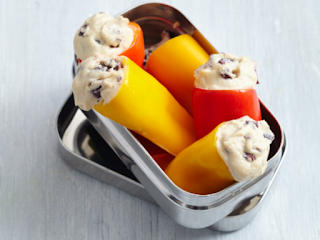Eating trigger: I can't resist junk food.
If chips and chocolate continue to call your name, try these ideas:
- Do not keep junk food at home.
- Do not keep junk food at your desk, and avoid walking by vending machines if possible.
- Eat healthy foods in a structured meal plan (use the Meal Planner!). You won't be as hungry, which will help you manage cravings.
- Wait 10 minutes. Distract yourself with an activity — whether it's filing your nails, working on a crossword, or cleaning out the junk drawer. The craving may pass (really!).
- Try healthier versions, such as baked rather than regular chips.
- Practice moderation to prevent feelings of deprivation. So, allow some intake of junk food but buy only a small, single-serving. Have it after you finish your meal. Realize that you may want seconds, so plan ahead with a positive distracting activity.
Eating trigger: Exercise makes me hungry.
Don't negate all the positive benefits of exercise by loading up on high-calorie foods afterward. Instead, take this approach:
- Most research has shown that exercise decreases physical hunger. Chances are you're experiencing psychological hunger: "Since I just worked out, I deserve to have 500 calories of junk food."
- If you are experiencing physical hunger before you exercise, eat foods that stick with you longer, such as whole-grain bread, cereal, pasta and brown rice.
- If you're exercising before a meal, have your meal ready. Don't double up with a recovery snack and a meal. Make your meal rich in complex carbs, such as fruits and whole wheat. Add some protein too, such as beans, fish, lean meat or eggs.
- Or, before you exercise, prepare a light, healthy snack for after your workout. Try fruit, yogurt or whole-grain crackers.
- Drink plenty of water before, during and after your workout.
- Remember to stick with a regular healthy diet. Following your Mayo Clinic Diet meal plan will help you manage hunger over time. It provides you with healthy, filling foods that meet your calorie recommendations, making your exercise plan more effective.
Eating trigger: I eat too much while socializing with friends.
Social support is important. Instead of isolating yourself, use these strategies when socializing:
- To reduce hunger, eat something healthy before going to social activities.
- If you're with friends at, say, a theater or stadium, order a bag of peanuts and work on eating it slowly.
- Drink water or a calorie-free beverage instead of having a snack.
- At parties, keep your distance from the food table. Focus on nonfood-related activities, such as selecting the music to play.
- Take some healthy foods to social events. Try a veggie tray, hummus and whole-wheat pita bread, or a fruit and veggie pizza with a whole-wheat crust.
- If you can identify someone who is supportive, use that person to help you stay on track at a social event.
By planning ahead and bringing awareness to trigger situations, you can successfully manage these weight-loss challenges.
TRY THIS EASY HEALTHY SNACK RECIPE



No comments:
Post a Comment